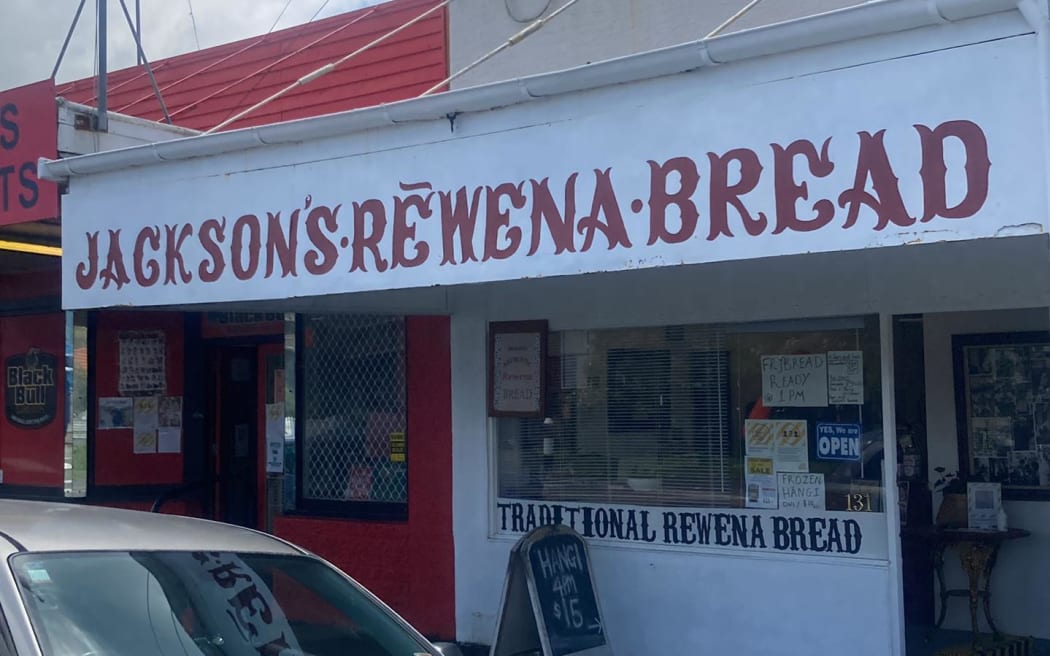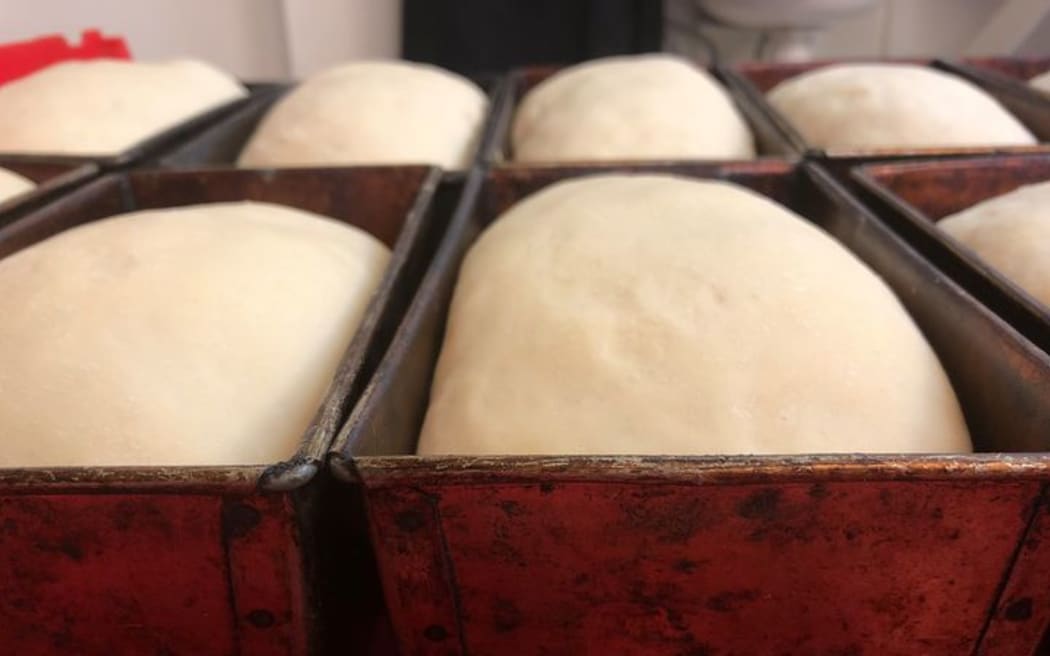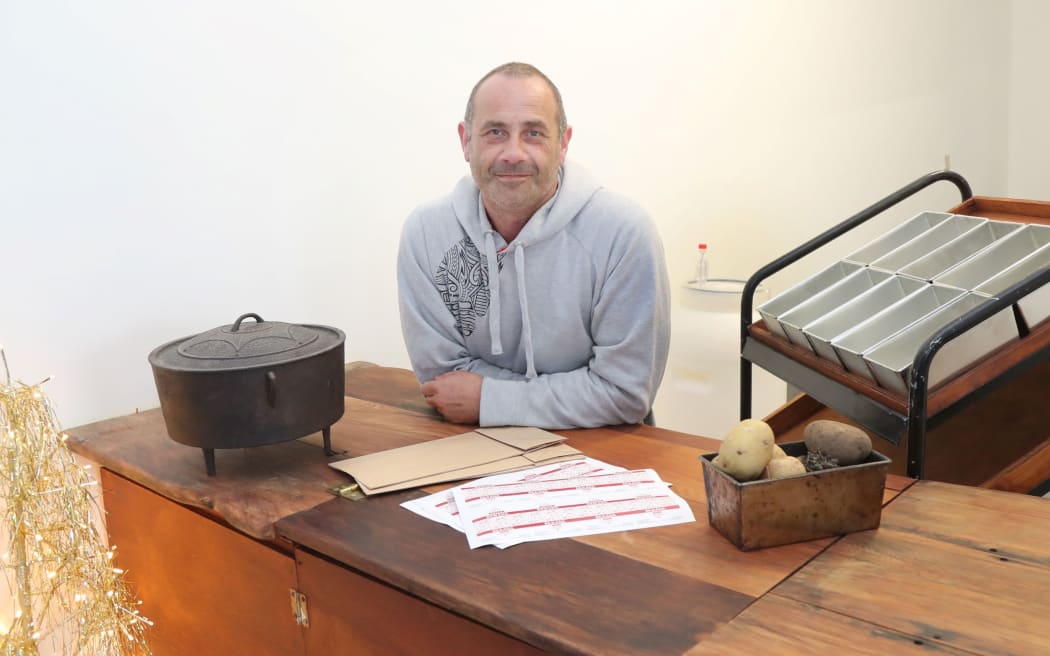Māori bread baked in Whanganui using a starter bug handed down over generations will feature on the world stage in a Unesco (United Nations Educational, Scientific and Cultural Organisation) project.

George Jackson bakes and sells the dense, sweet parāoa in a small shop in Whanganui East. Photo: LDR / Supplied
George Jackson’s rēwena – Māori sour dough parāoa made with a potato starter bug – is to be included in Unesco’s global Breads of the Creative Cities project to document and promote bread-making traditions and cultures.

Whanganui is part of the Creative Cities network after being named last year as New Zealand’s only Unesco’s City of Design, recognising the city’s historic and contemporary contributions to creativity.
Unesco describes bakers, millers and farmers as knowledge keepers, saying bread plays a culturally significant role in the heritage of a community and is a symbol of sharing and giving.
The project defines bread as a basic staple food prepared using water and a cereal, in whatever traditional way each community typically prepares it.
Jackson, who bakes and sells the dense, sweet parāoa in a small shop in the suburb of Whanganui East, said he carries on his great grandmother’s rēwena tradition to keep it from fading away.
“I want to keep the bread alive. I make it because I’m passionate about it, I just want to share it.
“At first I made it for my kids so they could experience what we experienced when we were children. If I didn’t make it, my children wouldn’t have even tried it or known what it was.
“We need to carry this on, keeping the knowledge from our ancestors and carrying it on.”

Some loaves of the popular bread. Photo: LDR / Supplied
Jackson uses his grandmother’s original natural yeast bug cultured from potato, and bakes the rēwena according to the 16-hour process passed down from her own mother.
“She’s been gone for 15 years. There’s all sorts of different techniques to make it, everyone has their own, but mine is what my Nan used to do.”
He still has the round, cast-iron camp oven his grandmother used to make rēwena but sells his parāoa in smaller loaves because he says people today live in smaller households and eat less bread.
Jackson says whānau traditions make rēwena a “legendary” food for many of his customers, summoning up childhood memories.
“Like togetherness, pretty much like Matariki is right now. Just togetherness, eating together, hearing our nannies up in the late hours of the night making the bread, having their cup of tea with their jam and butter on their rēwena.
“Māori enjoy some very indigenous food and rēwena bread is up there as far as legendary bread goes. It’s inevitable for it to be on a worldwide scale because it’s a really famous and loved bread. I’m stoked to see it recognised at a global level.”

Rēwena baker George Jackson with his Nan’s rēwena camp oven. Photo: LDR / NZME / Bevan Conley
Whanganui District Council-controlled economic development agency Whanganui & Partners put Jackson’s rēwena forward for the project and said his inclusion is “an incredible recognition” of the story behind the parāoa, elevating and celebrating the contribution indigenous cultures make to their city’s design heritage.
To help share Jackson’s rēwena story with an international audience, Whanganui & Partners commissioned a video featuring Jackson and his parāoa. Led by the city of Tucson, Arizona, a creative city of gastronomy, the Breads of the Creative Cities project will feature Jackson’s rēwena on its website and in a .pdf book and digital library.
Whanganui & Partners’ strategic lead of creative lndustries Emma Bugden says the agency is thrilled that the story of local rēwena would be shared beyond Whanganui.
“George talks about rēwena bread like it’s a connector to memory and to generations past. It is about sharing that knowledge that has been passed down to him with the current generation so it can be passed down to future generations.
“It’s so much more than food, it’s about how bread connects us as a community. It’s a beautiful story of a bread that’s from here, that is truly of Whanganui, and of someone who has a small business.
“By sharing our knowledge of bread, we can learn so much about each other. It shares a larger story about Whanganui, who we are as a community, what makes us a rich and thriving place, and it’s a global platform to share that.”
And the best way to eat rēwena?
Says Jackson: “For me, toasted, plum jam, with butter – that’s my thing”.
Local Democracy Reporting is a public interest news service supported by RNZ, the News Publishers’ Association and NZ on Air.